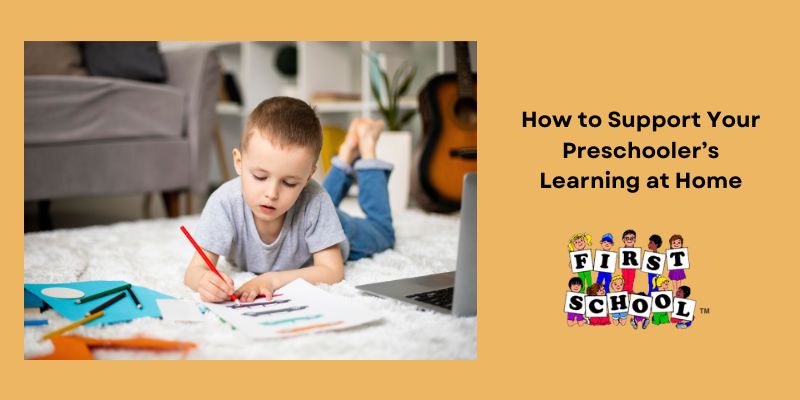



Supporting your preschooler's learning at home is a great way to enhance their education and build a deeper bond with them. Due to changes in education systems and current events, there is a growing need for home-based learning, and parents and caregivers play a vital role in creating an environment that promotes growth.
Explore these practical tips to help make preschool learning at home an engaging and rewarding experience for children and parents.
At this stage, preschoolers are developing essential cognitive, social, emotional, and physical skills. Their learning thrives through exploration and play, which helps build their problem-solving abilities, creativity, and social skills. Activities like building with blocks, playing pretend, and solving puzzles help preschoolers develop skills that will serve them throughout their education.
Here’s what preschoolers need at this stage:
A dedicated learning space is key to supporting preschool learning at home. This space doesn't have to be elaborate, it should simply be a quiet, organized, and distraction-free area where your child can focus on activities. Fill this area with age-appropriate materials like books, educational toys, and puzzles that engage your child's curiosity.
Tips for creating an interactive learning space:
Everyday activities offer a wealth of learning opportunities for preschoolers. Cooking together, for example, provides a great chance to teach math skills through counting ingredients or measuring liquids. Reading books together enhances language skills, and talking through daily tasks helps build vocabulary.
Some great everyday learning opportunities include:
These activities also help strengthen the bond between you and your child as you work together to accomplish simple tasks.
Learning doesn’t have to be limited to traditional lessons. Fun activities can be both educational and enjoyable for preschoolers. Here’s how:
These activities help develop various skills while keeping your preschooler entertained and engaged.
Social and emotional skills are just as important as academic skills for preschoolers. Role-playing and pretend play provide valuable opportunities for emotional growth. Children learn about empathy, cooperation, and communication through imaginative play by acting out different social scenarios.
Ways to encourage social and emotional growth:
These activities help nurture emotional intelligence, teaching your preschooler to navigate social situations with empathy and confidence.
A balanced routine is essential for supporting preschool learning at home. While it's crucial to include structured learning time, allowing time for unstructured play is equally vital. Play helps your child relax and explore new ideas in a less formal setting.
Tips for balancing learning with play:
Create a flexible daily schedule that includes learning, outdoor play, rest, and family time. Consistency helps provide stability, while flexibility allows you to adjust activities based on your child's needs, moods, and interests.
It’s important to keep track of your preschooler’s progress, whether learning new words, mastering shapes, or counting objects. Celebrate these milestones to reinforce the idea that learning is something worth celebrating.
To encourage a growth mindset:
Supporting your preschooler’s learning at home can be a fun and rewarding experience. By creating a dedicated learning space, incorporating learning into daily routines, and providing engaging activities, you can ensure that your child’s development continues to flourish. Remember that learning doesn’t have to be formal, it’s about nurturing curiosity, building confidence, and fostering a love for exploration.
Through patience, consistency, and creativity, you can help your preschooler thrive in an educational and enjoyable environment.
At First School, we believe that learning together creates lasting memories and bonds. Contact us today and start encouraging your preschooler's love of learning today and watch them grow in knowledge and confidence!